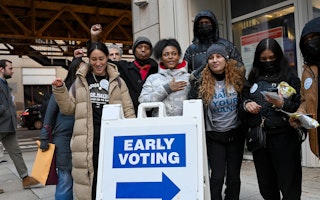What’s Wrong with California’s Gang Databases and Gang Injunctions
By Ana Muniz
Tracked and Trapped, a new report by the Youth Justice Coalition, has found that transparency and accountability are lacking in California’s gang database. It represents a preliminary report from a larger research project, which is the first large scale assessment of the effects of California’s gang databases and gang injunctions on those most impacted—the people listed on injunctions and databases, their friends and family, and as residents that live in areas covered by gang injunctions.
Youth and community members are doing surveys, interviews, GIS mapping, ethnography, content analysis, and statistical calculations. We will issue small reports like this one to tell you about what we are finding. Please let us know what additional information you think would be helpful in the comment section below.
It’s been 25 years since the city of Los Angeles created the first gang database and 30 years since Los Angeles County implemented the nation's first gang injunctions. Since then, law enforcement across California have been racially profiling and tracking people—primarily youth of color—suspected of “gang involvement” often based on what they look like, where they live, and how they dress. Gang databases are filled with the names and pictures of thousands of young people of color who have not been convicted of any crimes. The practice continues without transparency, accountability, notification of the individuals watched or their families, and without internal or independent evaluations as to the effectiveness and cost of gang databases.
Due to loose requirements for determining gang membership, along with the secret nature of CalGang, the database can have tremendous impacts, both reputation-wise and materially, on a person’s life. An individual need only fit two of nine non-rigorous criteria to be entered into the database. Most people are added to the database without having been arrested or accused of criminal activity. Most often, data, including pictures, is collected through routine police stops or stop and frisks. Once information is entered, a person is labeled as an active gang member or “associate.” There is no notification provided to the person labeled or to the parent/guardian if the person labeled is under 18. There is no opportunity to appeal or clear their names from the list or consistent opportunities for removal. CalGang can be accessed every time someone is stopped by law enforcement anywhere in the state. Over 200,000 people across California are on the Cal Gang database, including one in ten of all African-Americans between the ages of 20 and 24 in Los Angeles County. There are people as young as 10 years old in the CalGang Database.
CalGang effects prosecutions and sentencing as well. The database is routinely used to determine who is prosecuted in court for “gang related activity” and consequently, given a gang enhancement (additional time at sentencing). Gang enhancements can result in an additional 10 years of prison time on top of the original time sentenced.
While law enforcement officials have also repeatedly claimed that CalGang is a secret file that is not publicly shared, the information collected has been shared with employers, landlords, public housing, and school administrators, often leading to additional punishments, evictions, and exclusion from services and resources.
The Youth Justice Coalition is organizing to demand basic protocols for the CalGang database, including the requirement that people cannot be added to the CalGang (State Department of Justice) or local gang database(s) without receiving official notification and having the right to an appeal. Secondly, the Youth Justice Coalition demands clear and fair ways for people to have their name removed from databases and injunctions. Moreover, the Youth Justice Coalition calls for an end to violating people for living or being in contact with family members. The Youth Justice Coalition further demands that federal agencies end the deportation of youth, including people on gang databases and injunctions, and ensure that being on a gang database or injunction does not impact a person’s chances for Dream Act eligibility at the state or federal level or is used as an excuse for ICE detention or deportation. In order to monitor police activity and accuracy, the Youth Justice Coalition demands that each entry into the database is attached to the badge number, station and last name of the officer who collected the information as well as the officer who entered the information.
See the full report on gang databases, and learn how to do your own Public Information Request.
For more information on how you can join the fight to implement removal, appeal, and oversight processes, contact the author at anamuniz84@gmail.com.
Ana Muniz is a 2012 Soros Justice Fellow.


